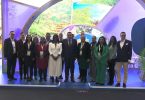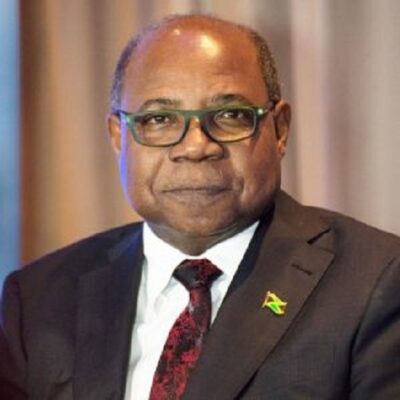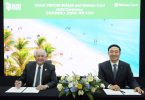Global Conflict | The Human Impact will address the human cost of violent conflict and identify emerging strategies for conflict resolution. Coming two decades after the Good Friday Agreement, and timed to coincide with the Papal visit to Ireland, this conference offers a distinctive opportunity to assess the lessons learned from the peace agreement, as well as the daunting challenges and human toll of the world’s current refugee crisis; the largest population of displaced people since World War II.
The academic agenda for the conference is being developed by The Pearson Institute and the Senator George J. Mitchell Institute for Global Peace, Security and Justice, incorporating the academic strength and excellence of two leading institutions while drawing upon the experiences of international leaders such as United Nations High Commissioner for Refugees Filippo Grandi, former US Senator George J. Mitchell, former US Assistant Secretary of State Anne C. Richard and Dominic MacSorley, CEO of Concern Worldwide.
“Global Conflict | The Human Impact will bring together new insights and empirical findings to better understand the sources of violent conflicts and to explore new approaches to resolve them,” said Daniel Diermeier, provost of the University of Chicago. “We look forward to working with Queen’s University Belfast to convene scholars, leaders and practitioners in a city that has many lessons to teach about conflict and peacemaking.”
Professor Richard English, distinguished professorial fellow in the Senator George J. Mitchell Institute for Global Peace, Security and Justice at Queen’s University Belfast, added, “Queen’s University Belfast is delighted to be working with the University of Chicago, and with such a diverse and influential set of experts, to address some of the world’s most pressing challenges in this compelling conference in Belfast.”
Gathering at Queen’s University Belfast, leading voices from around the world will engage in robust debate and discuss strategies that focus on reducing the prevalence of violent conflict and its tragic impact on people, especially families. Key content areas include:
- Northern Ireland: How peace was built
- Colombia: The path to peace
- Policy responses to the current global refugee crisis
- Impact of the refugee crisis on individuals and families
These panels will highlight evidenced-based research on various conflicts as well as first-person narrative accounts. Sessions will also explore conflicts and humanitarian issues through the eyes of global leaders who are working on-the-ground to address these challenges. Confirmed participants for Global Conflict | The Human Impact include:
- Muzoon Almellehan,
-
- Goodwill Ambassador, UNICEF
- Syrian Refugee
- Dr. Jeannie Annan,
- Father Gary Donegan,
-
- Director, Peace and Reconciliation, the Passionist Order
- Talks Chair, North Belfast Community Resolution Panel
- David Donoghue, Former Ambassador and Permanent Representative of Ireland to the United Nations
- Lyse Doucet, Chief International Correspondent, BBC
- Professor Richard English,
- Reverend Harold Good, Recipient, World Methodist Peace Award (2007)
- Filippo Grandi, United Nations High Commissioner for Refugees, The UN Refugee Agency
- Sergio Jaramillo Caro, Former High Commissioner of Peace, Colombia (2012-2016)
- Dominic MacSorley, Chief Executive Officer, Concern Worldwide
- Monica McWilliams,
- Senator George J. Mitchell,
-
- Inaugural United States Special Envoy for Northern Ireland (1995 – 1998)
- Independent Chairman, Northern Ireland Peace Talks
- United States Special Envoy to the Middle East (2009-2011)
- Dr. Fiona Murphy, Research Fellow, the Senator George J. Mitchell Institute for Global Peace, Security and Justice, Queen’s University Belfast
- Honorable Anne C. Richard,
-
- Former US Assistant Secretary of State, Population, Refugees & Migration (2012-2017)
- Former Vice President of Government Relations and Advocacy, International Rescue Committee (2004-2012)
- Professor James Robinson,
- Maria Teresa Ronderos,
- Sanj Srikanthan, Acting Senior Vice President and Executive Director for Europe, the International Rescue Committee
Additional speaker announcements will be forthcoming as will a formal conference agenda.
Limited seating is available to the public. For more information regarding Global Conflict | The Human Impact or if interested in attending the conference, please visit www.globalconflict2018.org.
For more information about The University of Chicago and The Pearson Institute for the Study and Resolution of Global Conflicts please visit: thepearsoninstitute.org. Additional information regarding Queen’s University Belfast and the Senator George J. Mitchell Institute for Global Peace, Security and Justice can be found here: https://www.qub.ac.uk/
MEDIA NOTE | FOR PLANNING PURPOSES:
For questions regarding conference content, to request a speaker interview and/or to apply for media accreditation, please email: [email protected].
GOT NEWS? click here
Google News, Bing News, Yahoo News, 200+ publications
About The University of Chicago & The Pearson Institute for the Study and Resolution of Global Conflicts:
The University of Chicago is a leading academic and research institution that has driven new ways of thinking since its founding in 1890. As an intellectual destination, the University draws scholars and students from around the world to its home in Hyde Park and campuses around the globe. The University provides a distinctive educational experience, empowering individuals to challenge conventional thinking and pursue research that produces new understanding and breakthroughs with global impact. Home to more than 90 Nobel laureates, the University of Chicago is dedicated to an environment of fearless inquiry and academic rigor.
In 2015, the University announced the creation of The Pearson Institute for the Study and Resolution of Global Conflicts, the first of its kind research institute dedicated to applying rigorous, evidence-based inquiry to the issues of peace and conflict. Led by Institute Director James Robinson, co-author of Why Nations Fail, the Institute seeks to understand the complex causes and consequences of conflict by mobilizing the best minds and the most innovative tools and technology to drive new breakthroughs and understanding that informs policy and leads to a world more at peace.
About Queen’s University Belfast & the Senator George J. Mitchell Institute for Global Peace, Security and Justice:
Queen’s University Belfast is a member of the Russell Group of 24 leading UK research-intensive universities, providing world-class education underpinned by world-class research. The university is in the top 200 universities in the world and is a UK top ten research-intensive university.
The Senator George J. Mitchell Institute for Global Peace, Security and Justice strives to create dialogue within which all voices can be heard and to underpin the pursuit of peace through world class research. The Institute connects the perspectives of all those who seek to contribute to conflict transformation and social justice – from the insights of world leading researchers to the experience of practitioners, policy makers, politicians and activists.
CONTACT: Meg Kane
Office: 1-484-385-2938
Cell: 1-215-704-4745
E-mail: [email protected]
![]() View original content with multimedia:http://www.prnewswire.com/news-releases/the-university-of-chicago-and-queens-university-belfast-to-host-global-conflict–the-human-impact-in-belfast-northern-ireland-300672553.html
View original content with multimedia:http://www.prnewswire.com/news-releases/the-university-of-chicago-and-queens-university-belfast-to-host-global-conflict–the-human-impact-in-belfast-northern-ireland-300672553.html
SOURCE The University of Chicago
Related Links
http://www.globalconflict2018.org






